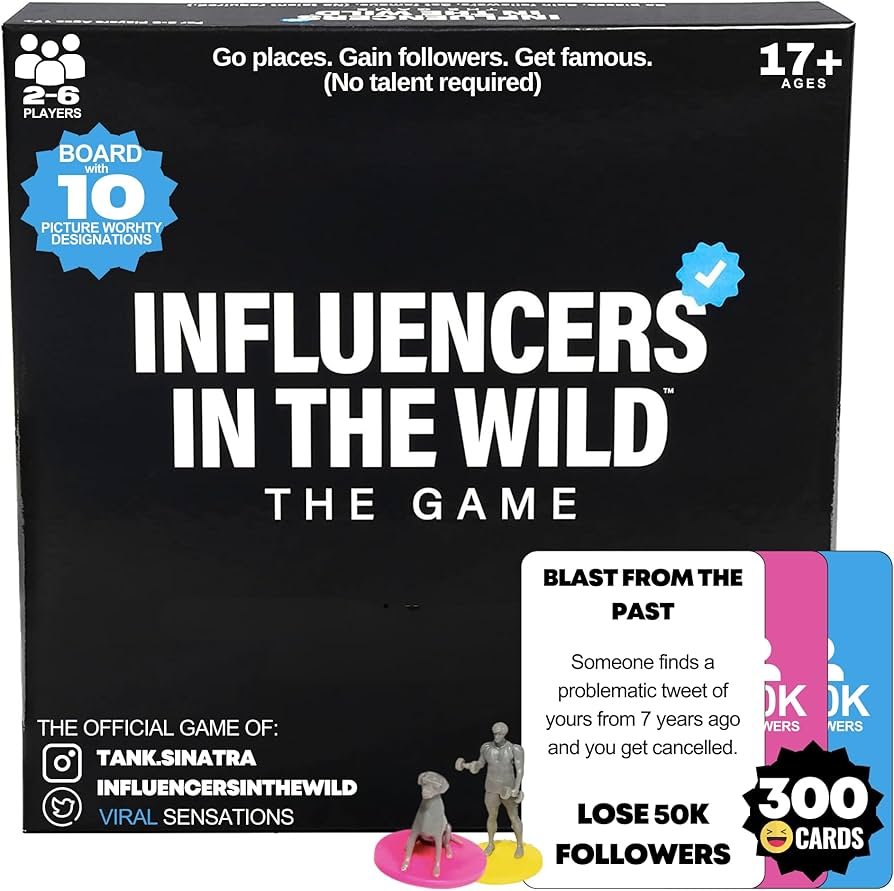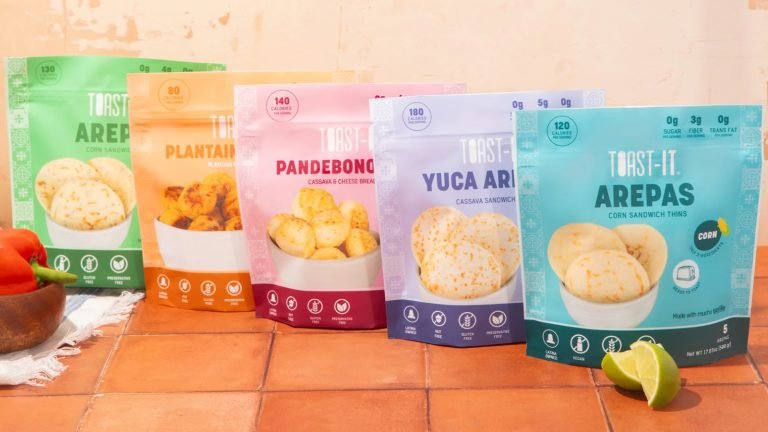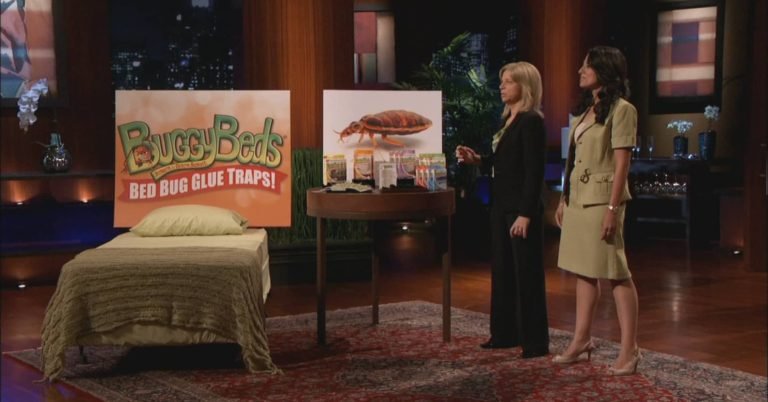Shark Tank Season 14 Products That Didn’t Get a Deal
Shark Tank Season 14 Products That Didn’t Get a Deal Explore the inspiring stories of Shark Tank USA Season 14 companies that left the tank without a deal. “Shark Tank” has been a platform where entrepreneurs showcase their innovative products, hoping to secure investments from one or more of the “sharks.” While many walk away…
Shark Tank Season 14 Products That Didn’t Get a Deal
Explore the inspiring stories of Shark Tank USA Season 14 companies that left the tank without a deal.
“Shark Tank” has been a platform where entrepreneurs showcase their innovative products, hoping to secure investments from one or more of the “sharks.”
While many walk away with deals that can propel their businesses to new heights, some leave without an agreement.
Despite not securing investments, these companies often gain valuable exposure and feedback. Here, we delve into the stories of several Season 14 products that didn’t get a deal, exploring their unique offerings and the reasons why they weren’t able to convince the sharks to invest.
Influencers in the Wild – The Game
A Modern Twist On The Classic Board Game
- Founder: Jack Wagner
Influencers in the Wild is a board game that humorously captures the life of social media influencers. It includes challenges, questions, and rewards that mimic the experiences of influencers, offering an entertaining way to poke fun at our digital obsessions.

Why They Didn’t Get a Deal: The sharks saw potential in the concept, especially given the popularity of the Influencers in the Wild Instagram account. However, concerns arose regarding the game’s marketability and longevity.
The novelty aspect was appreciated, but the sharks questioned its scalability and the potential for sustained consumer interest.
Again, there was uncertainty about whether the game could differentiate itself enough in the crowded market of board games and novelty items.
See The Way I See
Raising Awareness For Mental Health Through Apparel
- Founder: Dani Paluka
SEE THE WAY I SEE is a brand dedicated to mental health awareness. Their apparel features reassuring reminders on sweatshirt sleeves, fostering a supportive community and reminding individuals that they are seen and heard.
Why They Didn’t Get a Deal: The mission behind SEE THE WAY I SEE resonated with the sharks, who acknowledged the importance of mental health awareness. However, the sharks had reservations about the business model’s viability and scalability.
They expressed concerns about the ability to generate sufficient revenue and profit margins to sustain and grow the company.
The competitive nature of the apparel industry posed significant challenges, making it difficult for the brand to stand out solely based on its noble mission.
Dapper Boi
Genderless, Everyday Clothing Line
- Founders: Vicky Pasche and Charisse Pasche
Dapper Boi offers gender-neutral clothing that fits various body types and sizes, challenging traditional fashion norms and providing stylish options for everyone.
Why They Didn’t Get a Deal: The sharks appreciated Dapper Boi’s inclusive approach to fashion and the founders’ passion.
However, they were concerned about the company’s ability to scale and compete with larger, established brands in the apparel industry. The sharks also questioned the valuation and profitability metrics presented by the founders.
Despite acknowledging the growing demand for gender-neutral clothing, they felt that Dapper Boi needed a more robust strategy to differentiate itself and achieve significant market penetration.
Honey Bunchies
Gourmet Honey Bars From A Family Business
- Founder: Kate Holcomb
Honey Bunchies creates delicious, gourmet honey bars that are both salty and sweet, made by a woman-owned, veteran-owned family business.
Why They Didn’t Get a Deal: The sharks enjoyed the taste of Honey Bunchies’ products and admired the founder’s dedication. However, they expressed concerns about the product’s scalability and the competitive landscape of the snack industry.
The sharks were wary of the high costs associated with scaling production and marketing a niche product.
They also felt that the brand needed more differentiation and a stronger marketing strategy to compete effectively against established snack brands.
Burlap and Barrel
Single Origin Spices Sourced Directly from Farmers
- Founders: Ethan Frisch and Ori Zohar
Burlap & Barrel sources unique, high-quality spices directly from farmers in over 20 countries, promoting sustainability and fair trade practices.
Why They Didn’t Get a Deal: While the sharks appreciated the mission and quality of Burlap and Barrel’s spices, they were concerned about the business’s ability to scale and achieve profitability.
The direct-to-consumer spice market is niche, and the sharks questioned whether the company could grow sufficiently to justify the investment.
The founders’ valuation was seen as too high relative to their current revenue and profit margins, making it difficult for the sharks to see a clear path to a return on their investment.
Big Big, Little Bee
Innovative Products To Reduce Single-Use Plastics
- Founder: Jake Zien
Big Big, Little Bee develops innovative products aimed at reducing single-use plastics, promoting sustainability and environmental responsibility.
Why They Didn’t Get a Deal: The sharks appreciated the eco-friendly mission behind Big Big, Little Bee but had reservations about the market demand and scalability of the products.
They felt that while the concept was admirable, the business lacked a clear strategy for differentiating itself in a market already populated with numerous eco-friendly alternatives.
Concerns were raised about the production costs and the challenges of educating consumers about the benefits of the products in a highly competitive space.
Autio
Audio Travel Companion App With Location-Based Stories
- Founder: Woody Sears
The Autio app serves as a personal travel guide, offering over 10,000 location-based audio stories across the US, enhancing road trips with fascinating tales about landmarks and history.
Why They Didn’t Get a Deal: The sharks were intrigued by the concept of Autio and saw potential in enhancing travel experiences.
However, they were concerned about the app’s ability to generate consistent revenue and attract a large user base. The competitive nature of the app market, along with the need for significant marketing investment to gain traction, made the sharks hesitant.
They also questioned the long-term viability of the business model and the challenges of maintaining and updating a large database of audio stories.
Frescos Naturales
Fruit And Plant-Based Refreshments Inspired By Latin American Cultures
- Founder: Eduardo Hernandez
Frescos Naturales offers vibrant, natural refreshments inspired by Latin American flavors, available with or without bubbles, providing a refreshing and healthy alternative to traditional sodas.
Why They Didn’t Get a Deal: While the sharks enjoyed the taste and concept of Frescos Naturales, they were concerned about the brand’s ability to compete in the crowded beverage market.
The high costs of production, distribution, and marketing for a new beverage brand were significant barriers. The sharks also questioned the scalability of the business and whether it could achieve the necessary market penetration to be profitable. Th
Sharks felt that the founder needed a more defined strategy for branding and differentiating the product from existing beverages.
Nature’s Wild Berry
Transforming Sour Flavors Into Sweet Sensations
- Founder: Hank Watt
Nature’s Wild Berry offers freeze-dried miracle berries that turn sour foods sweet, enhancing culinary experiences and making healthy foods more enjoyable.
Why They Didn’t Get a Deal: The sharks found Nature’s Wild Berry intriguing and were impressed by the unique properties of the product.
However, they expressed concerns about the niche market and the challenges of educating consumers about the product’s benefits. The cost of customer acquisition and the need for extensive marketing to build awareness were significant hurdles.
Sharks questioned the scalability of the business and whether it could achieve substantial growth in a competitive market.
The Copy Keyboard
Simplifies Copying And Pasting Text
- Founder: Jake Epstein
The Copy Keyboard is a standalone keypad designed to streamline the process of copying and pasting text on computers, enhancing productivity and efficiency.
Why They Didn’t Get a Deal: The sharks appreciated the simplicity and utility of The Copy Keyboard but were concerned about its market potential.
They questioned whether there was a large enough consumer base willing to purchase a specialized keyboard for copying and pasting, given the availability of keyboard shortcuts and existing productivity tools.
The sharks also had reservations about the product’s differentiation and the potential for scalability and profitability in a highly competitive tech accessory market.
Conclusion
Despite not securing deals, the entrepreneurs behind these Shark Tank Season 14 products demonstrated creativity, passion, and resilience.
While the sharks identified various challenges and risks associated with these businesses, the exposure and feedback gained from appearing on the show can still provide valuable opportunities for growth and development.
Many companies that leave the tank without a deal continue to thrive and evolve, proving that sometimes, the journey itself can be just as valuable as the destination.






